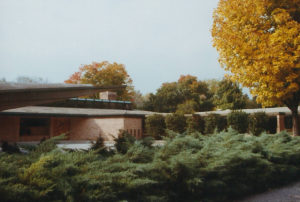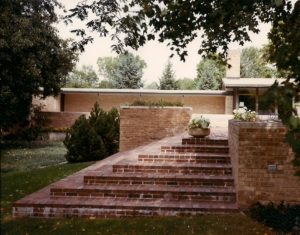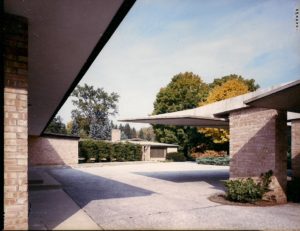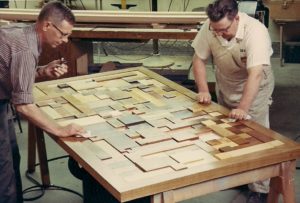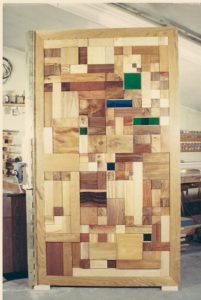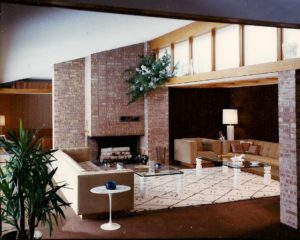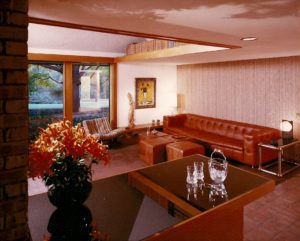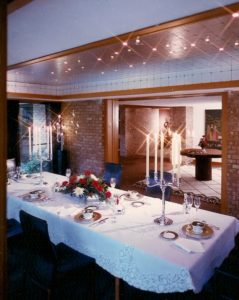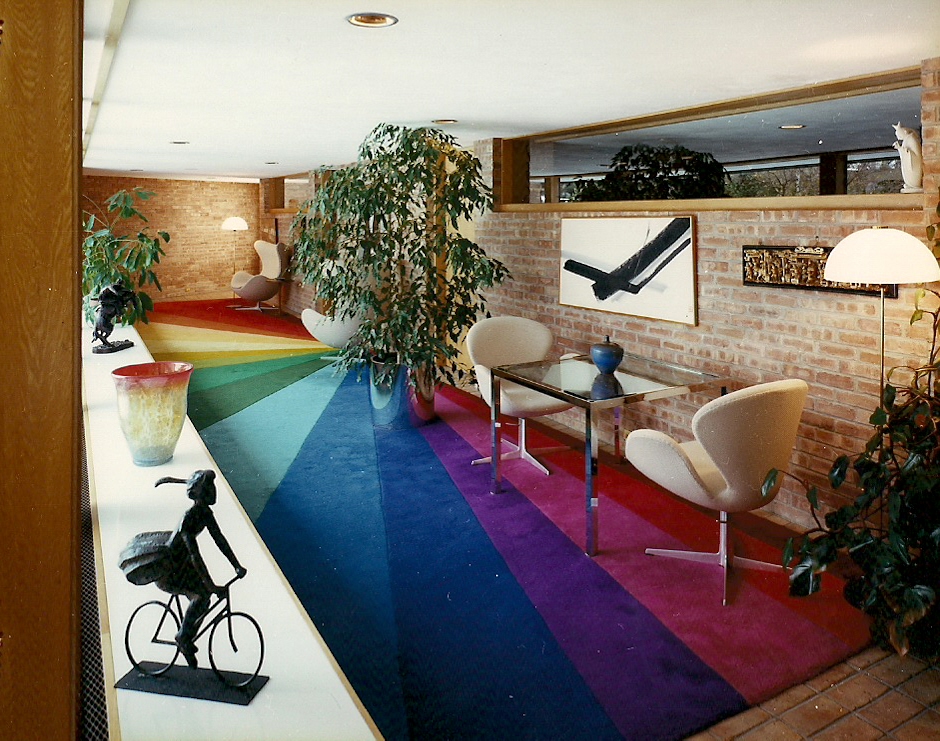Location: Midland, Michigan
Architect: Alden B. Dow
The Macauley Whiting residence was designed in 1947 for Macauley and Helen Dow Whiting. Mrs. Whiting was the niece of Alden B. Dow, the architect of the home. Mr. Whiting worked for the Dow Chemical Company, becoming Manager of the Midland Division and later, Director and President of Overseas Operations.
The contour of the Whiting property rolls gracefully down to a creek and is heavily-wooded with trees originally planted by Herbert H. Dow, Mrs. Whiting’s grandfather. The architect took advantage of these features when placing the house on the site. The front of the one-story home follows the horizontal plane of the land with the mature trees forming a supportive backdrop for the design. The rear elevation, much of which is glass, opens the house up to spectacular views of nature. Retaining walls, terraces, and graduated stairs follow the contour of the landscape and lead down to the meandering creek.
A row of clerestory windows follows the low roof line. On the exterior walls, Chicago Common pink bricks are laid in a horizontal pattern that further accentuates the horizontal lines of the structure. The front door is made up of different pieces of wood collected by the Whitings in their travels throughout the world, including Brazilian Cedar, New Zealand Red Pine, and Rosewood from Thailand. A work of art, the door was specially designed for them by Mr. Dow and constructed in the workshop of the architectural studio by Ted Gwizdala, his master woodworker.
When the Whitings first moved into their home, they had two children. The floor plan was a rather basic rectangle. The main level consisted of a large living room overlooking the wooded back yard, flanked on one side by the dining room and adjacent porch, kitchen, pantry, maid’s bedroom and bath. Off to the other side of the living room was the private zone with the master bedroom, dressing room and bath, plus two additional bedrooms and bath.
As the family grew from two to six children, the house underwent a number of additions and modifications between 1949 and 1963. After a comprehensive restoration in 2018, the residence now serves as the Visitor Center for the Whiting Forest of Dow Gardens.


